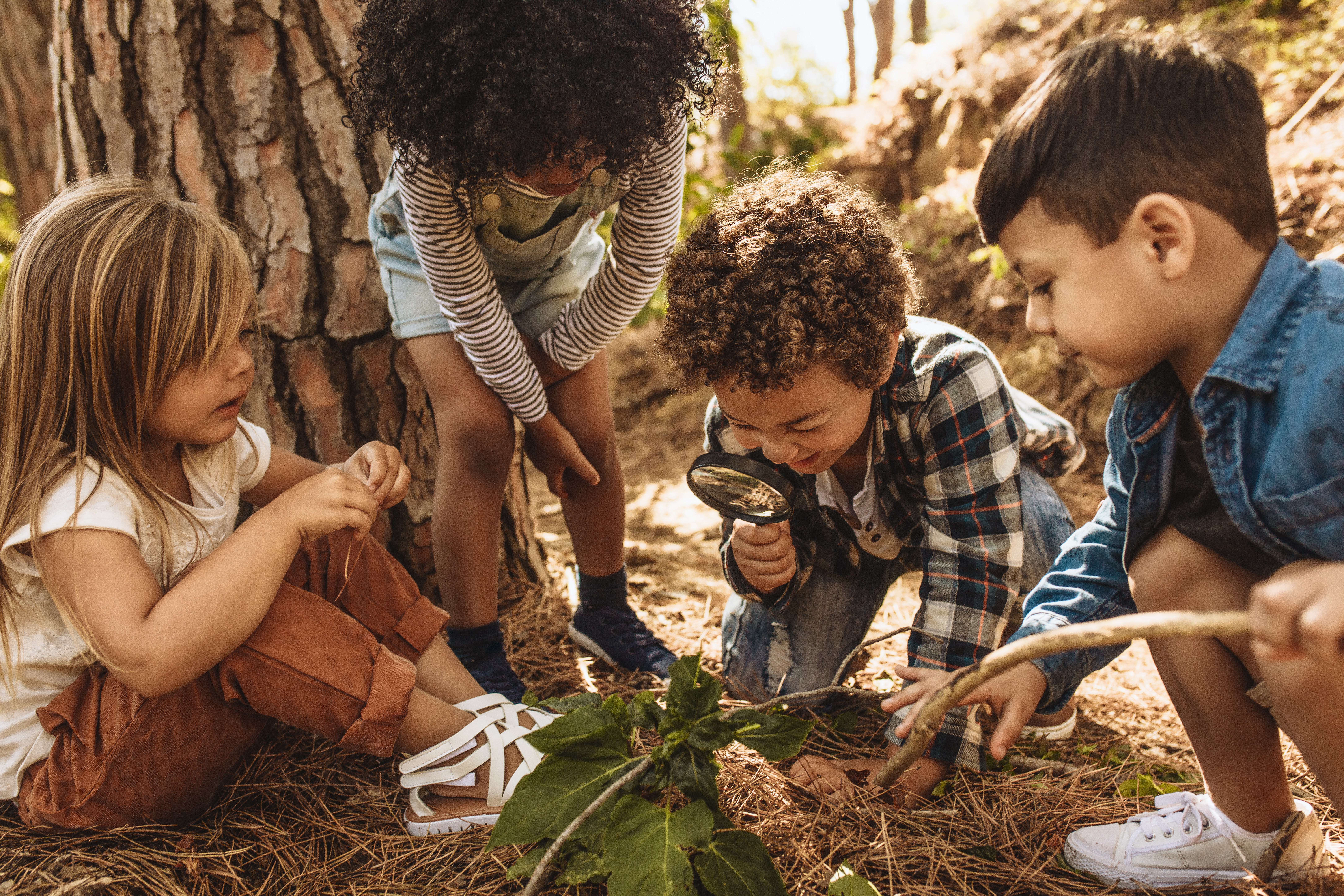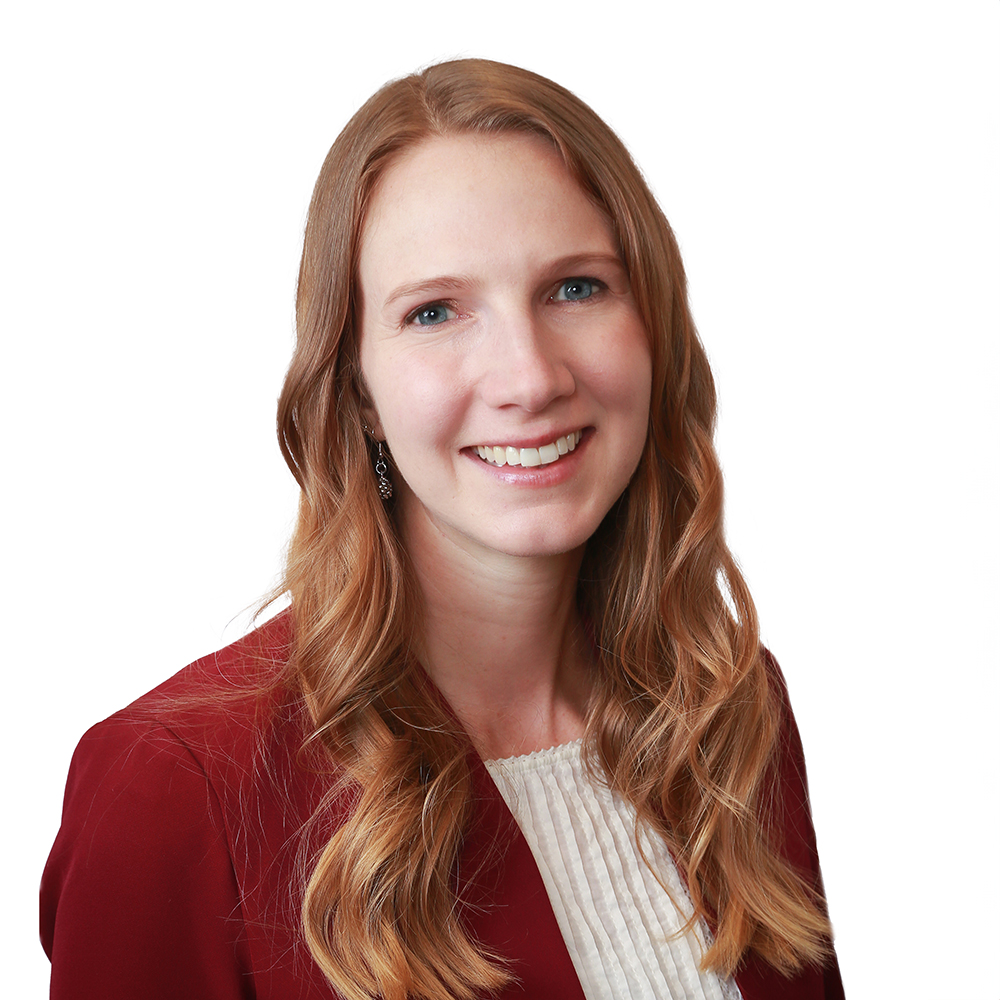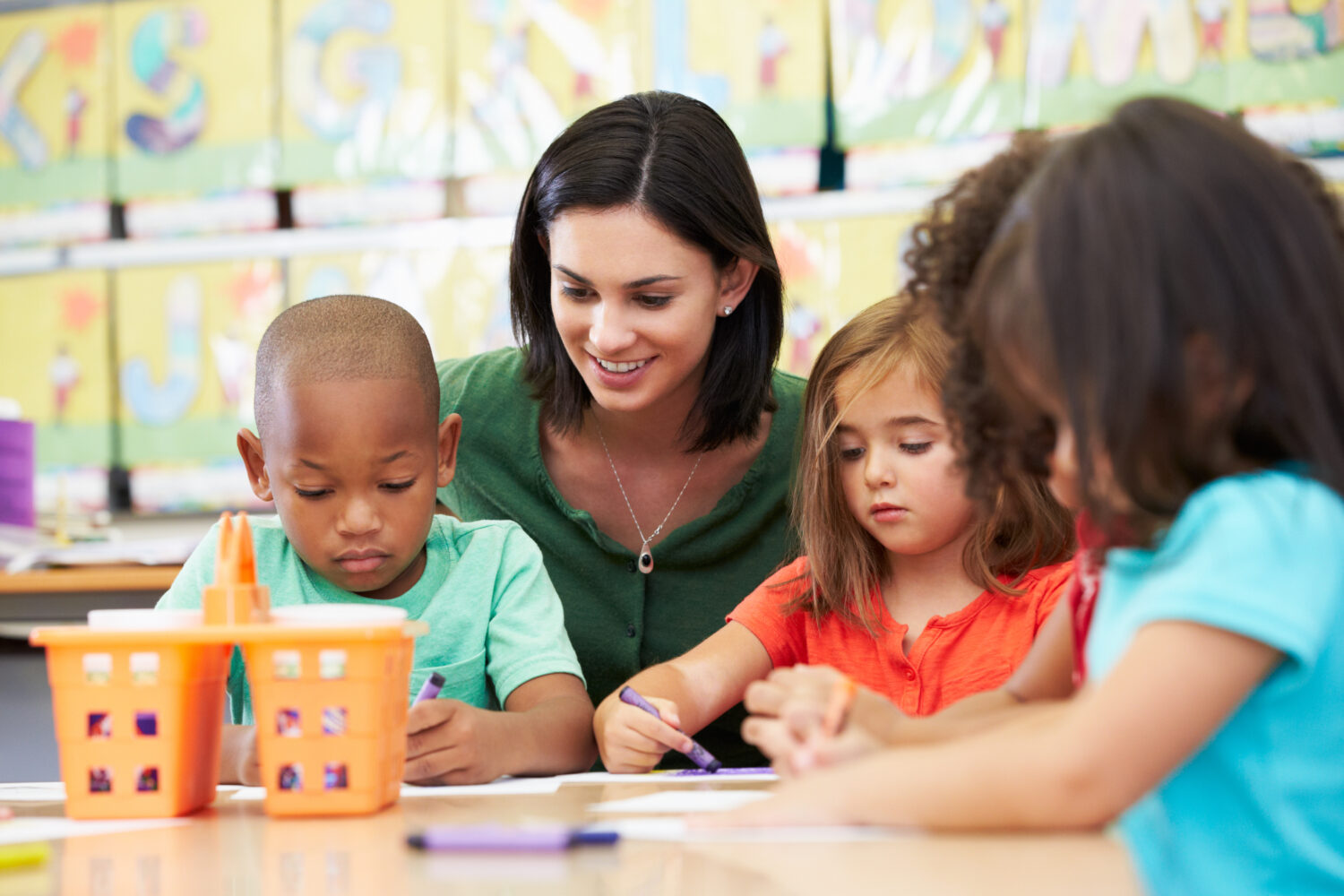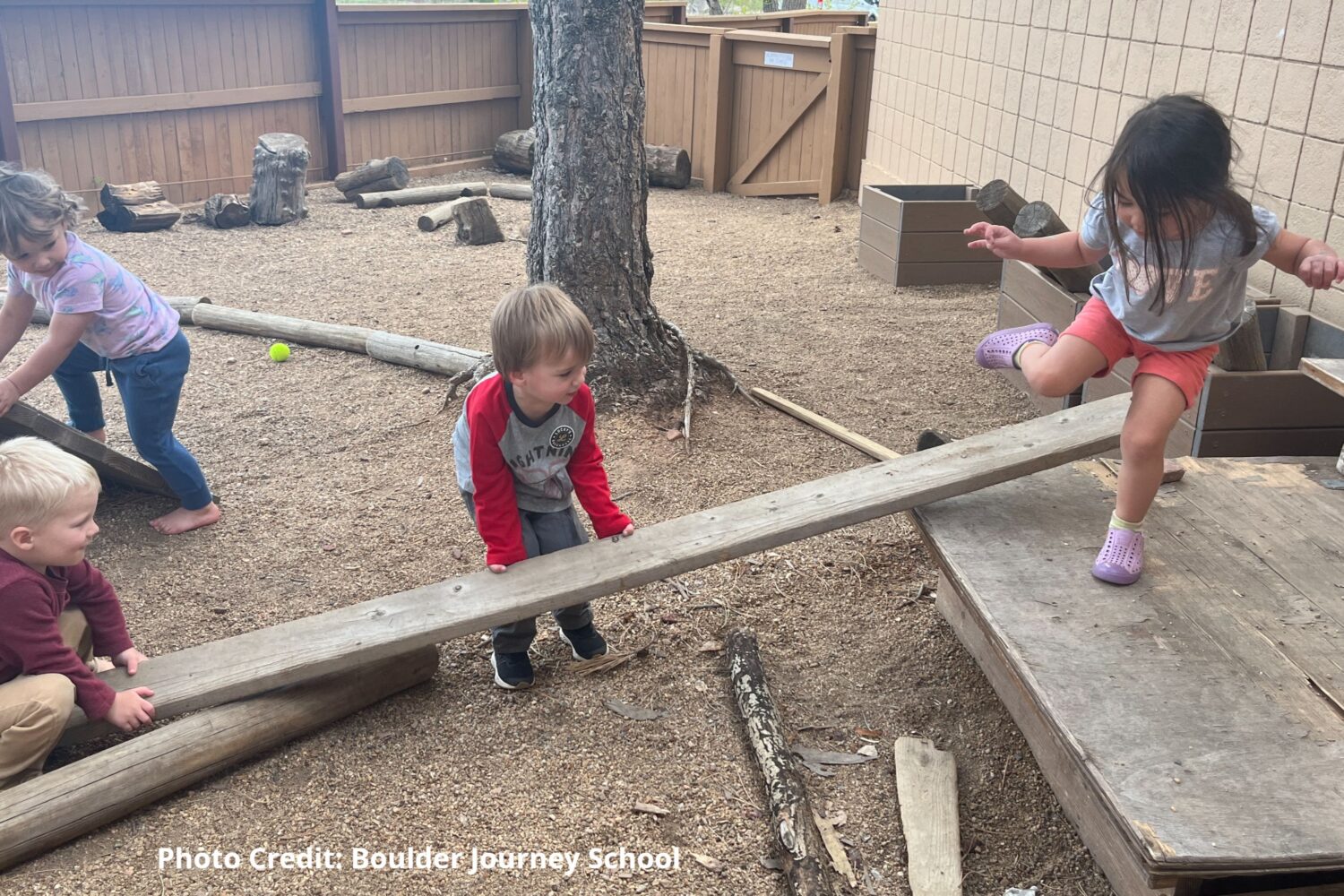Over the past five years, Trust for Learning, a philanthropic partnership dedicated to expanding ideal learning environments for underserved children, and Early Milestones Colorado have worked together to scale up these learning environments across the state. Ideal learning approaches are models that bring a whole-child approach to learning, placing children at the center of their education while supporting teachers and affirming equity. There is no one curriculum; rather, many well-known models in early childhood education align with the nine key principles of ideal learning.
As Trust for Learning explains, “Several essential beliefs weave throughout, including a commitment to play, relationship-based interactions, an ecologically-focused, child-centered perspective; equity; and a strength-based and inquiry-based approach with children, adults, and families.” These principles were founded upon years of evidence from comprehensive early childhood approaches such as Montessori, Reggio Emilia, Friends Center for Children, Tools of the Mind, Bank Street College of Education, and Waldorf, which serve as models of whole-child-centered education.

Through this partnership, Early Milestones researched challenges and opportunities to advance ideal learning approaches in early care and learning in Colorado. We also evaluated the alignment between the principles of ideal learning and state-supported guidance, mapped existing programs in the state, and produced a brief to make the case for expanding the use of these models. This work led to a funding opportunity to support school- and community-based programs (including some pre-kindergarten and kindergarten programs) that were interested in adopting ideal learning approaches.
Grantees Implement Ideal Learning Projects Across the State
In July 2022, six grantees were selected to receive support in their efforts to expand ideal learning environments across Colorado. The approaches they used include teacher training on Tools of the Mind, the Sustainably Integrated Trauma Informed Education (S.I.T.E.) Framework, the Neurosequential Model of Education (NME), Montessori Coaching, the Pyramid Plus Approach, and Creative Curriculum. These approaches provided valuable insights and learnings that can also help to inform the Colorado Department of Early Childhood’s universal preschool program as it grows and develops.

Located in Denver, Denison Montessori is providing professional development to staff to address the impacts of toxic stress and trauma on children and adults. Grant funds are being used specifically to implement the Sustainably Integrated Trauma Informed Education (S.I.T.E.) Framework and the Neurosequential Model of Education (NME). Denison will serve 142 students across 6 primary classrooms with the S.I.T.E. Framework and NME.
Eagle County School District is strengthening a new preschool classroom’s alignment with the principles of ideal learning. The grant is helping to establish outdoor learning centers at Gypsum Elementary School. They are also creating a classroom environment that authentically represents, embraces, and celebrates the different languages and cultures of the 15 children and their families that will be served by their program.
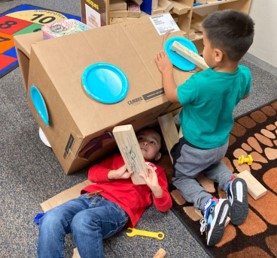
Denver’s Eagleton Elementary School is using grant funds to train a teacher and paraprofessional in Tools of the Mind, a program that builds inclusive classroom cultures and emphasizes play-based learning. Trained educators will collaborate with the other early childhood education (ECE) teaching teams to improve learning experiences for children and families. They will do so by helping 32 students across two classrooms develop cognitive, social-emotional, self-regulatory, and foundational academic skills.
Montessori Collective provides scholarships for a teacher and a paraprofessional at Goldrick Elementary in Denver to attend Montessori training together. Through the training and with the ongoing support of Montessori Collective coaches, educators are gaining knowledge to personalize learning experiences for each child. They are also creating child-centered learning environments that foster exploration, curiosity, and independence for the 16 children that will be served at Goldrick Elementary.
Paradise Place Preschool, located in Crested Butte, is using grant funds to support educators through a monthly focus on the nine ideal learning principles and an expanded use of the Teaching Strategies Gold observational assessment tool. Additionally, they are investing in Creative Curriculum materials and training educators in the Pyramid Plus Approach. Combined, these initiatives promote healthy social-emotional development for the 55 students served at Paradise Place Preschool as well as practices that support inclusion.
YMCA of Northern Colorado is using funding to implement Tools of the Mind at the YMCA Inspire Preschool in Longmont, in collaboration with St. Vrain Valley School District. The implementation of this play-based and child-centered curriculum will help educators better serve children and families. Ninety-seven preschoolers will be served at Inspire Preschool.
Over 350 children will benefit from ideal learning environments in the 2022-23 school year because of this grant funding, and hundreds more will be impacted in the years to come through investments in teacher training, classroom materials, and curriculum implementation. Of the children served:
- 71% qualify for free and reduced lunch
- 45% do not speak English as their first language
- 20% live in rural communities
- 16% receive special education services
Researching the Impact of Ideal Learning
Currently, Early Milestones is conducting interviews with teachers and administrators to learn from their experiences working to create ideal environments. All those interviewed have expressed the benefit of ideal learning methods, in light of heightened challenges in the early childhood field stemming from the COVID-19 pandemic. Administrators and teachers have raised the need to have the tools not only to educate, but to address stress and anxiety in their students. One teacher who received training on the S.I.T.E. Framework reflected, “As a society, we just went through a global pandemic. Trauma and the brain, neurologically, what’s happening, are very important things for educators to know what you’re dealing with. [And] how to figure out what strategies you can use. If you can recognize where [the students] are, you can meet them where you are with the strategies.”
A number of those interviewed expressed that the 2022-23 school year was the most difficult year in their teaching tenure. Fortunately, the principles of ideal learning environments are closely aligned with trauma-informed practice. With their ideal learning training, educators were able to add new strategies and felt better supported as educators. An educator with over a decade of experience who went through Tools of the Mind training shared, “[Tools of the Mind] is amazingly supportive of teachers as learners and children as learners.”
Another educator shared, “A teacher provides structures and scaffolds for a child. Every aspect of the day, we’re always thinking about where the children are now, where we want them to be, and what tools they need to get there. It’s amazing. It really works with this age group.”
Making the Case for Ideal Learning Environments
In March 2024, Early Milestones will release a final report with findings on how Colorado can continue to expand ideal learning environments around the state. Through our research and interviews with grantees, we have already learned that adopting ideal learning methods can have a transformative impact in early learning settings. Using the experiences and voices of teachers and administrators as our guide, we will share resources, testimonials, and recommendations so that more child-serving programs that are interested in ideal learning have the tools to get started.
keyTakeaways
Ideal learning places children at the center of their education, affirms equity, and is mindful of the many models that exist in early childhood education.
With grant funding, six grantees expanded ideal learning environments in 2022-23.
Early Milestones will release a report in March 2024 with tools and recommendations on how to further expand ideal learning environments in Colorado.

